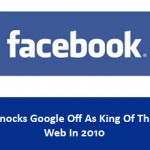San Francisco — In the latest turn of events in a long-running possible class-action lawsuit about Google’s parked domain program, a federal judge has ordained the search engine giant to reveal the identities of four AdWords advertisers who were clients of Internet marketing agency Wpromote.
The judgment, declared earlier this month by U.S. Magistrate Judge Howard Lloyd in the Northern District of California, arises from several lawsuits filed in 2008 involving Google’s “AdSense for Domains and AdSense for Errors programs,” which displays ads on sites that have little or no editorial content. Users often land on such sites after mistyping a URL. The complainants in the suit argue that the search company placed their ads on low-quality web pages.
The lawsuits, now continuing as one consolidated action, the complainants originally claimed that these sites are low-quality and yield worse conversion rates for marketers than ads that appear on Google’s search results. In a revised complaint filed last month, the marketers say they believed that clicks on ads on parked domains “were unlikely to lead to desirable business outcomes, and that placement on such pages could damage their brands.”
The case, is now being disputed in the Northern District of California, which contains six different lawsuits initially lodged against Google in 2008. Plaintiffs include are: “RK West, JIT Packaging, Pulaski & Middleman, West Coast Cameras, Hal Levitte and Richard Oesterling”.
The marketers’ data was presented in disguise as part of the search company’s defense, in an attempt to justify that “parked domains and error pages” could garner good conversion rates. Google, which asserts that parked-domain ads “perform as well as or better than ads on Search and Display Network sites,” recently filed papers seeking dismissal of the case. The company argues that it did not hoodwinked or harm any of the plaintiffs by placing their ads on parked domains or error sites.
Wisely, as part of its defense, Google broached Wpromote CEO Michael Mothner to prepare a report arguing that the lawsuit should not be granted class-action status. That is a major concern for Google because even if the case is nto dismissed by the court, individual marketers’ damages in click-fraud lawsuits tend to be too small to make it worthwhile for them, or their attorneys, to pursue the cases individually.
Mothner wrote as suggested by search engine giant that the lawsuit should not proceed as a class-action because conversion rates vary depending on the advertiser. Especially, he said that some ads have “higher conversion rates on parked domain and error page websites than on other websites,” according to the court’s ruling.
Nevertheless, the U.S. Magistrate “Judge Howard R. Lloyd” explicitly stated that the names of the advertisers should be disclosed, so that complainants could argue whether the report is representative.
“Such information includes detailed analysis regarding the performance of the ads that RK West and the Wpromote Clients placed through the AdWords program,” Google’s attorneys said in a filing asking for modification of the judge’s order. “Public disclosure of this information could cause competitive harm to RK West and the Wpromote Clients by giving third-parties access to their sensitive business information.”
“It was Google (or Mothner) who risked the Wpromote clients’ identities at issue in the first place, so it cannot use confidentiality provisions to shield itself from disclosing their identities now,” Lloyd wrote. He gave Google until Dec. 22 to comply.
However, late last week, the complainants submitted papers claiming that Google “is in violation of a court order” because it had not yet turned over information about the search marketers.


